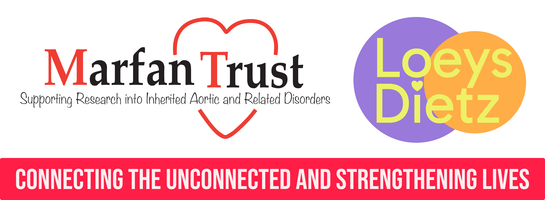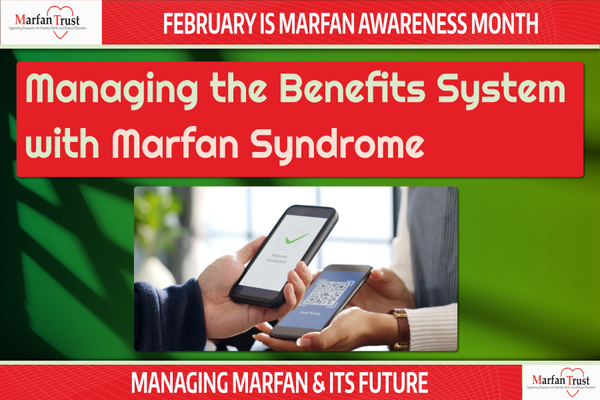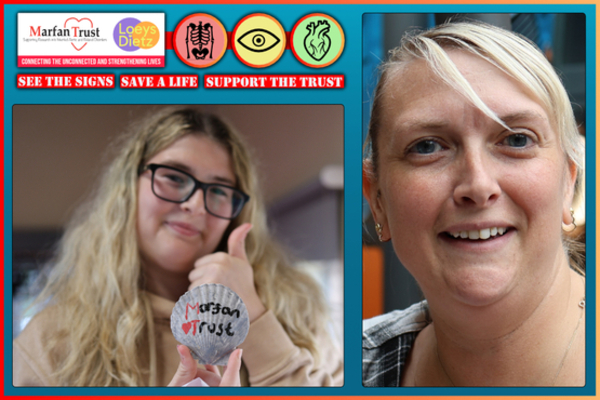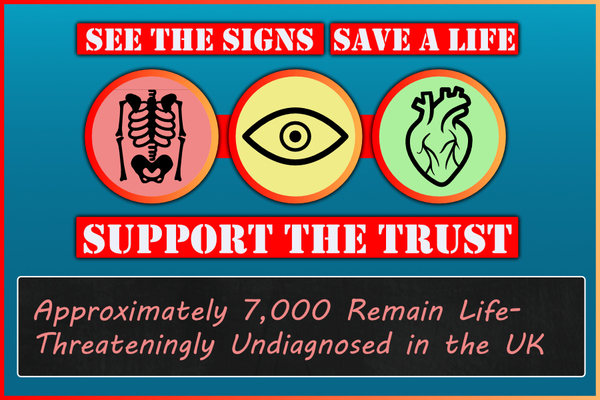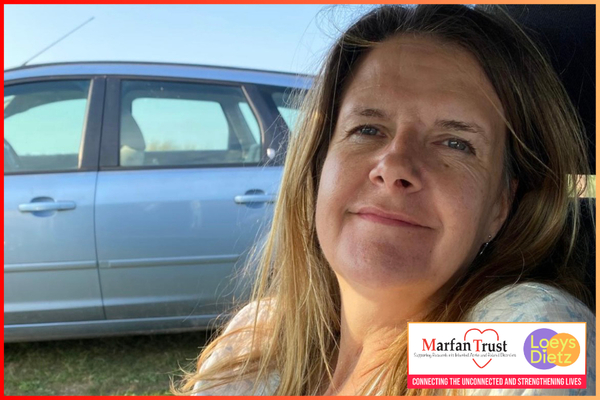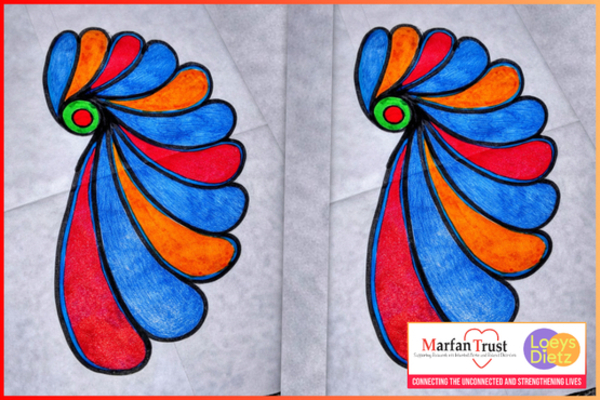The daily routine that underpins our everyday existence, from travelling to work or simply getting dressed, can be harder with Marfan syndrome. You may need some extra help and you may well be entitled to this. Personal Independence Payment (PIP) can assist you with living costs and here is our one-stop guide to navigating the system.
We receive numerous queries to our helpline asking about PIP. This is probably a reflection of the rapidly rising cost of living. However, it is also hopefully an indication that we have an engaged group of members who are aware of their rights and are keen to advocate for themselves and get the help and assistance they are entitled to.
This aims to be a useful guide to some of the benefits that may be available to help make life with Marfan syndrome a bit easier.
This article refers mainly to PIP which is the name of the benefit in England and Wales, available to individuals over 16 years of age. In Scotland, this benefit is known as Adult Disability Payment, but it assesses the same aspects of daily living, and the payment amounts are the same.
Children in England and Wales are eligible to receive Disability Living Allowance (DLA) until they are 16 years of age at which point, they apply for PIP.
In Scotland, children receive Child Disability Payment, the amounts are the same as those offered in England and Wales, but this benefit is available until children are 18 years of age.
Personal Independence Payment (PIP) can help with extra living costs if you have both:
- a long-term physical or mental health condition or disability
- difficulty doing certain everyday tasks or getting around because of your condition
You can get PIP even if you’re working, have savings or are getting other benefits.
You can get Personal Independence Payment (PIP) if all the following apply to you:
- you’re 16 or over
- you have a long-term physical or mental health condition or disability
- you have difficulty doing certain everyday tasks or getting around
- you expect the difficulties to last for at least 12 months from when they started
Other Benefits
There are other benefits that may be available to you, and it is worth looking into your eligibility, the information you need will be on the GOV.UK website or MYGOV.SCOT
- Universal Credit
- Limited Capability for Work (part of universal credit)
- Carer’s Allowance
- Council Tax Discount
- Disabled Person’s Railcard
- Blue Badge
This is not an exhaustive list and there are links to useful websites at the bottom of this article that can provide more information. These websites also have benefit calculators so you can get an idea of what you might be entitled to. We are not benefits specialists so it's important to investigate further exactly what you can apply for, perhaps by talking to Citizen's Advice. Your local council may be another valuable resource for help and advice.
The process of applying for PIP can be time consuming so try and manage your expectations and if you are going to make an application make sure you have gathered as much information as possible beforehand to smooth the process. Citizens Advice estimate that it can take around 6 months from the date you first contact the Department for Work and Pensions (DWP) to the date you receive your first payment (although this will be backdated) if you are eligible.
Tips for completing the application form
This link, gov.uk will take you to all the government's information and application page for PIP. You can speak to someone over the phone to start the application or do it online or via post. Read the guidelines and decide on which route best suits you.
Try and get some help with your form, either from a trusted friend or relative, or from a social worker or indeed from the Marfan Trust. It is helpful to talk through your everyday routines with another person as they may notice things that should be included on your application that you now just take for granted. Fill in the form based on how you are affected by your condition on a bad day, you can estimate how many ‘bad days’ you have in a week on the form to give the assessors a good overview.
Remember that PIP is not awarded based on a specific condition but on how it affects an individual. Marfan is a rare condition, and it is therefore important to include within your application some basic information about the condition. However, the most important parts of the form are those that detail how the condition affects you.
When the Marfan Trust writes support letters for PIP applications or appeals, we usually include a brief paragraph about the condition and a template that you can adapt may be useful, please see the paragraph below and feel free to use this or something similar to give an overview of the condition:
Marfan syndrome (MFS) is a rare condition that affects around 1 in 3000 people globally. It is a genetic condition that affects the connective tissues which are found throughout the body and therefore the effects can be very varied between different individuals. Connective tissue gives strength and structure to our bones, joints, organs, blood vessels etc and there can be serious consequences if the syndrome is not managed appropriately. In MFS a deficiency in a substance called fibrillin means that the connective tissue throughout the body is weak and can cause a wide range of symptoms. These symptoms can vary greatly from person to person, so it is vital to consider each person with MFS on an individual basis. Three main systems that are most affected by MFS: the skeletal and cardiovascular systems and the eyes.
Marfan affects everyone differently, so you need to think about specific things that you may struggle with. Below are some examples of things people might find difficult, they may or may not apply to you. It’s important to take your time completing the form and thinking carefully about it.
The form can seem very repetitive but stay consistent. Don’t leave anything out big or small. And include things like help and assistance you might need during the night or other things like transport to hospital appointments, need for specialist clothes or shoes due to height or foot issues.
Try and include objective examples of how your life is affected by your symptoms of MFS. For example, include the time it takes you to get to your GP surgery or to your local shop and include the distance. Does it take you more than twice as long to make this journey as your peers? This would demonstrate that everyday activities are taking you much longer and give a quantifiable example to the assessors.
This works through the application on a question-by-question basis to help you think about some of the things that you might need to include.
Q1 – Conditions, Medications, Treatments
You need to include all the conditions you have with dates of diagnosis, if possible, medications you take and treatments you have had including surgery, again with dates. This should include any treatments you have had to pay for privately too such as physio, podiatry, acupuncture, counselling or other therapy.
Try and include as much information from your specialist doctors as possible in the form of letters and reports from your appointments.
Q2 – Health Professionals
List all your doctors, therapists, social workers etc
Q3 – Preparing and Cooking a Meal
- Do you have problems with your joints that mean it is difficult to use utensils in the kitchen such as knives or peelers?
- Does pain impact whether you can prepare food?
- Does fatigue impact whether you can prepare food?
Q4 – Eating and Drinking
- On bad days are you able to prepare food and drinks for yourself or do you need help
- Do you have any digestive symptoms that make eating and drinking painful/difficult?
- Does pain or fatigue affect your appetite or your desire to eat?
- Do you have to eat a special diet due to intolerances or allergies?
Q5 – Managing Treatments
- Do you remember to take your tablets/treatments as and when you need them or do you need support?
- Are you able to open the bottles/packets the medications come in or do you struggle with your joints?
- Do you struggle with any side effects of the medications you are taking e.g. drowsiness that limits your ability to carry out daily activities.
Q6 – Washing and Bathing
- Do you have adaptations in your bathroom to allow you to wash and use the toilet?
- Does pain or fatigue affect your ability to get washed and dressed daily?
- Do you need help getting washed and dressed?
- Are you able to get in and out of a bath?
- Can you wash your hair without assistance?
- Do you need a family member nearby because you fear falling or becoming dizzy/fatigued or unable to finish washing and dressing safely?
- How long does it take you to get washed and dressed?
- Do you need to rest after you have washed and dressed?
Q7 – Managing Toilet Needs
- Are you able to go to the toilet independently?
- Do you have any problems with incontinence?
- Do you have to plan journeys or visits considering available toilets outside the home?
Q8 – Dressing and Undressing
- How long does it take you to get dressed/undressed?
- Do you struggle with anything like zips/buttons/shoelaces
- Are you able to dress/undress independently or do you need help?
- Do you need special shoes due to foot problems or the size of your feet?
- Do you get dressed every day or do you have bad days on which you can’t manage?
Q9 – Communicating Verbally
- Does brain fog/fatigue affect your ability to communicate?
- Do you have days when you can’t communicate with other people due to pain/fatigue or other symptoms?
Q10 – Reading
- Do you need adaptations to help you read?
- How is your eyesight affected by MFS?
- Can you read correspondence/bills etc and manage them?
- Does fatigue/pain affect your ability to read and concentrate?
Q11 – Mixing with Other People
- Does pain/fatigue affect your ability to spend time with other people or make it difficult to be with other people?
- Do your symptoms (e.g. incontinence/pain) mean that you are sometimes not able to leave the house or make you anxious about being with other people?
Q12 – Making Decisions About Money
- Are you able to manage your own finances or do you need help?
- Can you manage your online banking and pay your bills as and when necessary?
- Do you need assistance with shopping, either going to the shops, unloading the groceries at home and how long does it take you to do these things?
- Have you needed to pass these responsibilities to family members or trusted friends due to your symptoms?
Q 13 – Going Out
- Do you get out of bed, washed and dressed every day or do you have days when you are unable to do these things due to symptoms?
- Do you need someone to accompany you when you go out due to symptoms e.g. pain, fatigue, anxiety, instability when walking, poor eyesight
- If you go out independently how long does it take you to go a certain distance e.g. from your house to the GP (include the distance) or to the supermarket.
- How much rest do you need after you have been out, does this exacerbate your symptoms?
- Can you use public transport independently?
Q14 – Moving Around
- Can you walk unlimited distances, or do you need to rest (include details about how far you can walk before you need to rest)
- Do you have to walk more slowly than your peers, do they need to wait for you?
- Do you need aids to help you with mobility e.g. wheelchair, mobility scooter, crutches, walking stick?
- Do you need someone to accompany you when you go out?
- Do you have days where you find it difficult to move around, either inside or outside your home?
- Do you have to go home before you have completed all your chores due to pain or other symptoms?
Additional Information – add in any extra details you think will be relevant to the assessors and useful for them to know when assessing your claim for PIP.
Before the interview
- Take some time to prepare
- Have a look over the form you completed so you can remember the information that was important (take some extra notes if you need to)
- If you need any adjustments make sure you ask for them before the appointment (e.g. do you need to go upstairs, is there a lift)
- Bring your medications along with you
- Bring medical reports with you if you have them
- Remember to think about how you feel on your worst days and how often this happens on average (think about how many times a week you have days when your capabilities are severely affected)
- Try and answer the questions accurately but don’t feel that you must keep talking, let the interviewer ask what they need to know
During the interview
- You may be asked lots of the questions you have already answered in your application form in a slightly different way
- Take your time to think about answers and don’t feel rushed
- Try and give examples that will illustrate the problems you have, for example, you may be able to walk to the shops or do the laundry but after the activity you cannot function for the rest of the day due to your symptoms.
- If you are feeling anxious or stressed or in pain or very fatigued ask for a short break so you can collect your thoughts
- If you are asked for specific dates for when things happened or how long things lasted etc. take your time to answer accurately. Don’t feel rushed or pressured to give quick answers, it’s more important to give accurate answers
- Take a family member or friend along with you for support.
Ways the Marfan Trust can help:
- Advice on completing the application form
- Help completing the application
- Providing letters of support to strengthen your application
- Help with the appeal process if your application is rejected
https://www.citizensadvice.org.uk/benefits/sick-or-disabled-people-and-carers/pip/
https://www.mygov.scot/browse/benefits/disability-benefits/adult-disability-payment
